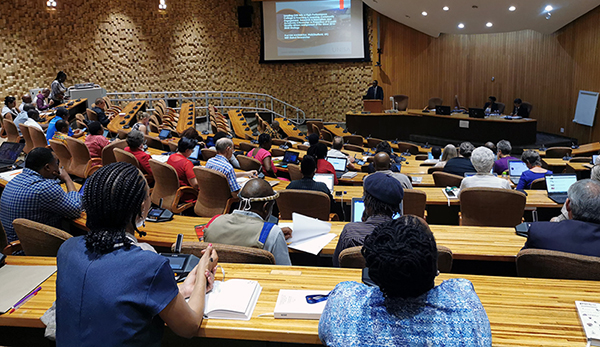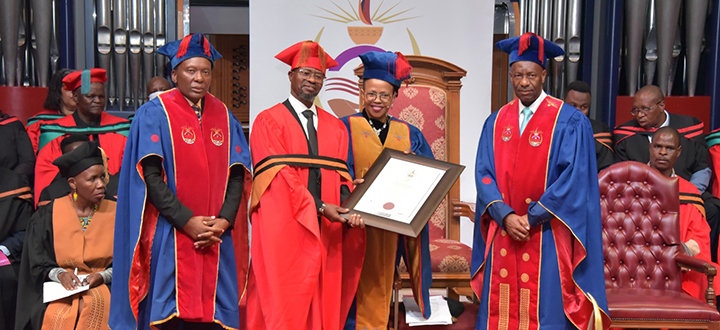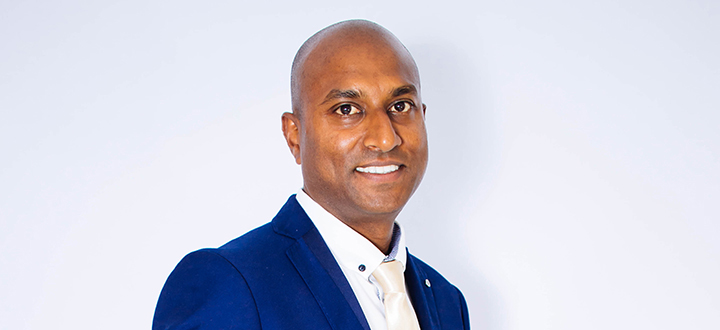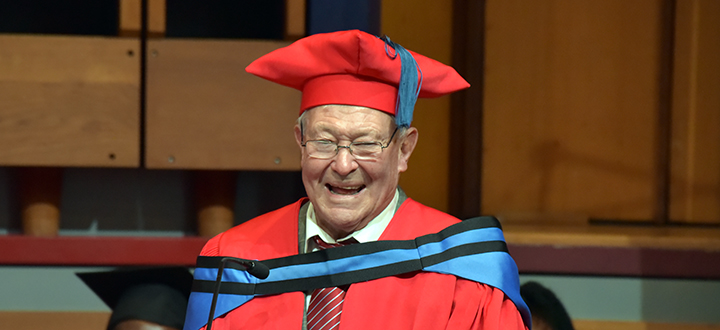College of Human Sciences
CHS unapologetically African
Unisa’s College of Human Sciences (CHS) is a goldmine of opportunity, said its Executive Dean (ED), Prof Kgomotso Masemola, when he opened the first College Board for 2020. He was addressing CHS staff, providing them with a snapshot of where the college is, where it is going and encouraging them to be their best selves in order to make 2020 a success.

The ED advised staff that it is better to focus on the strengths of the college rather than dwell on negativity. He said it was important to focus on positivity in order to lead CHS into a new era of high performance in teaching and learning, community engagement, and research and innovation. "This is not my journey; it is our journey," he said, reminding CHS staff that they are trailblazers, with a track record that proves this.
He said the college’s vision and plan was in line with Unisa’s vision of being the African university shaping futures in the service of humanity, and the key features of the Unisa Strategic Plan. He said CHS would focus on, among other things, social justice to improve the lives of the community; being "unapologetically" an African college, one that is contextually relevant with projects that speak to the National Development Plan; being a trendsetting college that focuses on open, distance and e-learning (ODeL); giving students a quality higher education experience; and a college that is "unequivocally" committed to high-performance and innovation.
"We must create spaces as a college that play to our strengths."
He said that there were plans in place to increase the number of NRF-rated researchers in the college even though CHS was already doing very well in this regard. He also highlighted that there would be greater interventions to increase the pool of research professors within the college. Additionally, he said there is a need for the South African Research Chairs Initiative (SARChI) to be hosted in CHS. "There is an even greater need, especially since we are a college that is talking decoloniality, Africanisation and gender-related topics."
African-centric scholarship filtering down
Masemola was adamant that transformation at CHS was more than about changing faces, and that it had to extend to research and the curriculum. On this point, he said that it was important for the college’s scholars to cite Unisa, CHS and African scholars in their research. In doing this, such African-centric scholarship can then filter down into the curriculum, transforming and revitalising it. He said this was an important exercise to get right because CHS had to construct its own identity, so that its students and graduates could have a particular CHS character.
He also advised staff to relook at their research and ask themselves if it was contributing positively to society. Furthermore, he said to them that their research should be holistic, allowing it to help themselves to develop as people, while simultaneously contributing to the development of the country, continent and world.
Addressing the topic of community engagement (CE), Masemola said that CE in the college had to draw from community expertise while contributing to transformation in society. This expertise should also be included in the curriculum.
He concluded by saying the "work done by CHS is not solely for ourselves, but for our people…as we rise, we must take others with us".
* By Rivonia Naidu-Hoffmeester, Communications and Marketing Specialist, College of Human Sciences
Publish date: 2020-03-03 00:00:00.0

 Education MEC addresses Unisa autism seminar
Education MEC addresses Unisa autism seminar
 Seven Unisans nominated for the NSTF-South32 Awards 2023/2024
Seven Unisans nominated for the NSTF-South32 Awards 2023/2024
 Unisa awards posthumous honorary doctorate to literary maven, OK Matsepe
Unisa awards posthumous honorary doctorate to literary maven, OK Matsepe
 From humble beginnings to academic leadership
From humble beginnings to academic leadership
 Community champion and agricultural entrepreneur extraordinaire honoured by Unisa
Community champion and agricultural entrepreneur extraordinaire honoured by Unisa